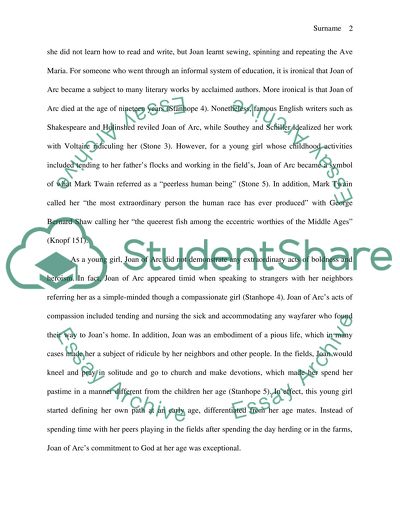Cite this document
(“Joan of Arc Essay Example | Topics and Well Written Essays - 1250 words”, n.d.)
Joan of Arc Essay Example | Topics and Well Written Essays - 1250 words. Retrieved from https://studentshare.org/other/1401385-joan-of-arc
Joan of Arc Essay Example | Topics and Well Written Essays - 1250 words. Retrieved from https://studentshare.org/other/1401385-joan-of-arc
(Joan of Arc Essay Example | Topics and Well Written Essays - 1250 Words)
Joan of Arc Essay Example | Topics and Well Written Essays - 1250 Words. https://studentshare.org/other/1401385-joan-of-arc.
Joan of Arc Essay Example | Topics and Well Written Essays - 1250 Words. https://studentshare.org/other/1401385-joan-of-arc.
“Joan of Arc Essay Example | Topics and Well Written Essays - 1250 Words”, n.d. https://studentshare.org/other/1401385-joan-of-arc.


